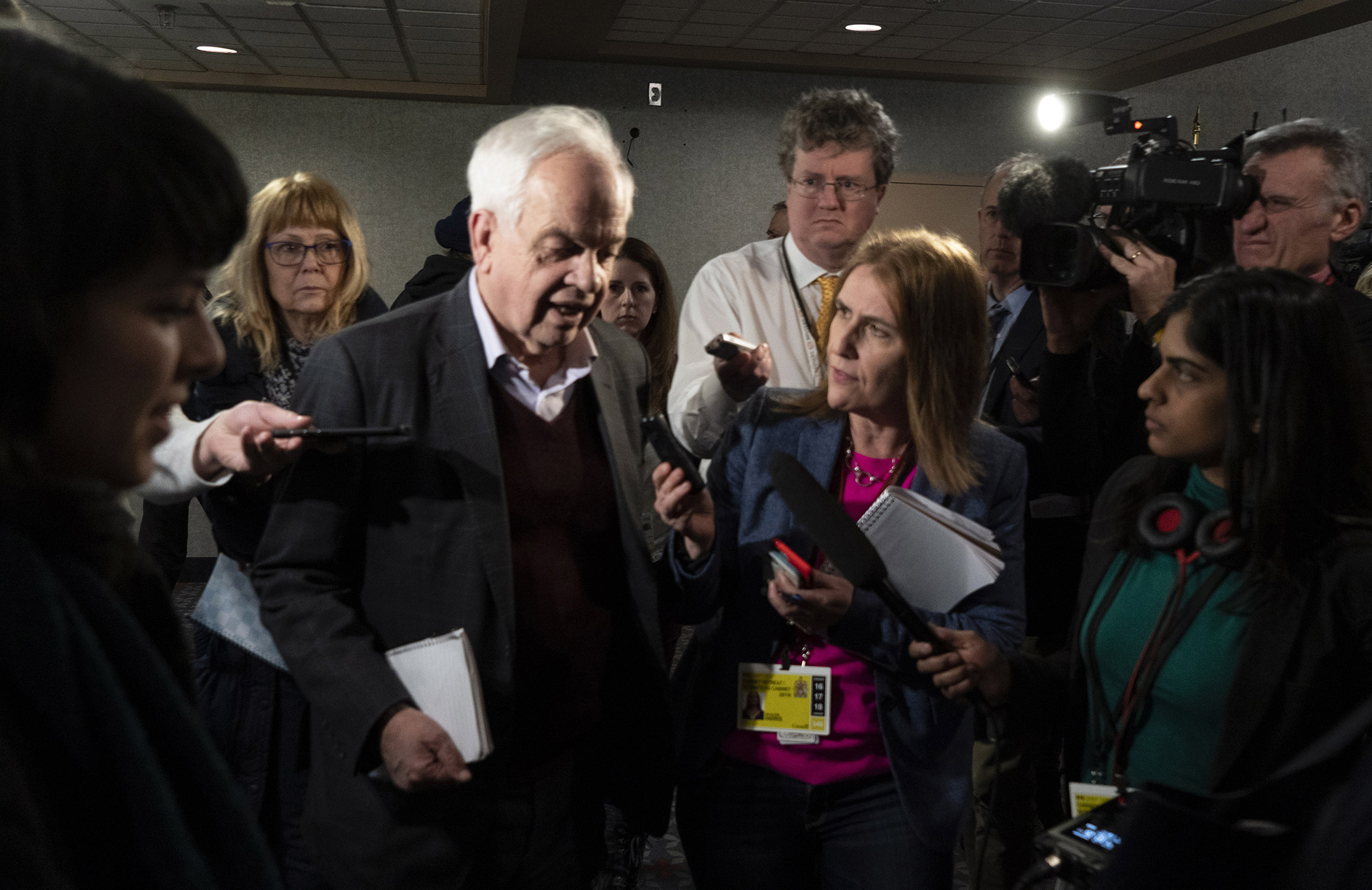Media Report

- The New York Times reports, "Canada's ambassador to China has resigned following a series of diplomatic missteps that further complicated already strained relations between the two countries. The resignation came days after the ambassador, John McCallum, stunned seasoned diplomatic observers by saying that Meng Wanzhou, the chief financial officer of the Chinese telecom firm Huawei who was arrested in December by Canadian authorities in Vancouver at the United States request, stood a good chance of avoiding extradition to the United States. His public assessment of the sensitive and high profile case came under sharp criticism, including from the leader of the opposition conservative party Andrew Scheer, who said Mr. McCallum's comments threatened to politicize the case and called for him to be fired."
- The New York Times reports, "Over the past year, the United States has embarked on a stealthy, occasionally threatening, global campaign to prevent Huawei and other Chinese firms from participating in the most dramatic remaking of the plumbing that controls the internet since it sputtered into being, in pieces, 35 years ago. The administration contends that the world is engaged in a new arms race — one that involves technology, rather than conventional weaponry, but poses just as much danger to America's national security. In an age when the most powerful weapons, short of nuclear arms, are cyber-controlled, whichever country dominates 5G will gain an economic, intelligence and military edge for much of this century."
- The Washington Post reports, "A Chinese court sentenced on Monday one of the country's most prominent rights defense lawyers to 4½ years imprisonment, capping a years-long campaign by the government to shatter a burgeoning civil rights movement that challenged its authority. Wang Quanzhang was found guilty of subversion of state power, a court in Tianjin said, in what was a relatively light sentence for a figure who played an early role in training grass-roots lawyers and activists to wield the law — and perhaps more worryingly for authorities, social media — in their duels with officials over land seizures, police brutality and the prosecution of banned religious groups."
Calendar
- 2019-01-27 America Pushes Allies to Fight Huawei in New Arms Race With China
- 2019-01-25 China says Soros' criticism of Xi is 'meaningless'
- 2019-01-24 China Appears to Block Microsoft’s Bing as Censorship Intensifies
- 2019-01-23 Top White House adviser says no trade meetings with China canceled
- 2019-01-22 U.S. to formally seek extradition of Huawei executive Meng Wanzhou: Globe and Mail
- 2019-01-21 Concerns about global economy grow
- 2019-01-20 Asia-Pacific stocks gain ahead of China GDP
- 2019-01-18 Trump, Kim Jong-un to Hold Second Meeting Next Month
- 2019-01-17 Huawei Said to Be Under U.S. Investigation in Trade-Secrets Case
- 2019-01-16 Tense Relations Between China and Canada as Trudeau Criticizes Canadian Citizen's Death Sentence
News
- The New York Times In 5G Race With China, U.S. Pushes Allies to Fight Huawei
- The Washington Post Chinese court hands rights lawyer 4 1/2 -year prison sentence
- The New York Times Canada's Ambassador to China Pushed Out Over Controversy
- Reuters World stocks slide on China worries, rising supply hits oil
- CNBC Trump administration reportedly pushing allies to bar China's Huawei in race for 5G networking
- Reuters Excluding Huawei could hurt 5G network development: China envoy to EU
- The Wall Street Journal U.S. Soybean Farmers Laid Low by China's Pig Virus
- Financial Times Caterpillar earnings hit by China slowdown
- The Wall Street Journal Manufacturers Take a Sales Hit in China
- Financial Times Trade war forces Chinese chipmaker Fujian Jinhua to halt output
- The Washington Post Australia: China has raised 'anxiety' in disputed waters
- The Wall Street Journal Investors Warm to the Firms That Underpin China's E-Commerce Boom
- Reuters China regions losing 'momentum' in pollution fight: minister
- CNBC China's Didi just announced a new joint venture to work on electric and hybrid vehicle projects
Commentary
- CNBC US-China trade war: A stable deal with a strategic adversary is an elusive quest
- Bloomberg Here Are Three Scenarios for U.S.-China Trade Talks This Week
- Forbes The China "Hard Landing" Is Back On The Table
- Reuters Explainer: Key Issues, implications of U.S.-China trade talks
- CNN Canada's relations with China were already bad. Then Trudeau fired his ambassador
- The Atlantic The U.S.-China Trade War Isn't Going Anywhere